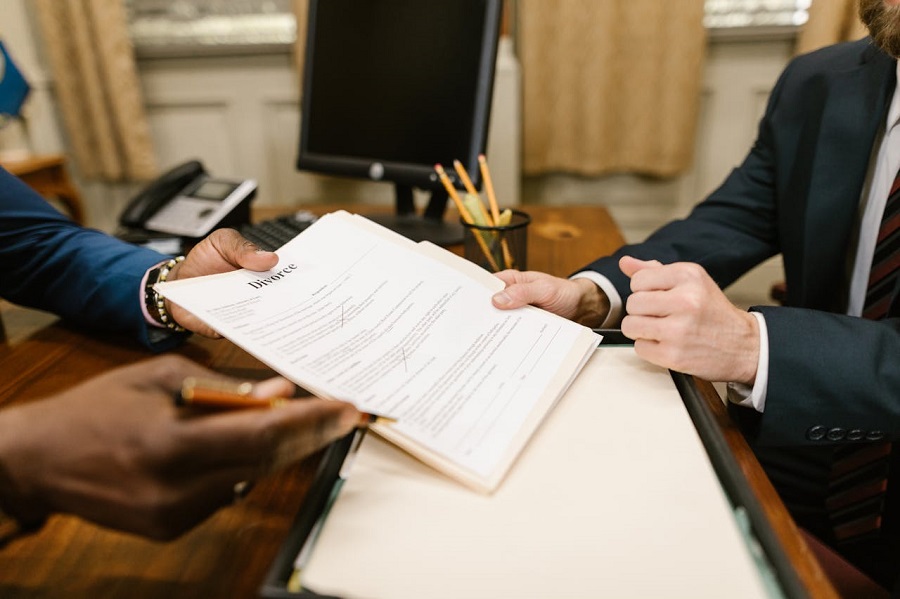Criminal injuries compensation solicitors: Do you need legal help to claim?

Filing a criminal injuries compensation claim can be a stressful and emotionally challenging experience. Between gathering evidence, completing the application form, and understanding the criteria set by the Criminal Injuries Compensation Authority (CICA), many applicants feel overwhelmed. Some victims choose to manage the process on their own, but this approach carries risks. It is often wiser to seek the guidance of a specialist criminal injuries solicitor.

Key Takeaway: Do you need a solicitor to secure fair compensation after a crime?
Let’s explore when and why a criminal injuries solicitor can make all the difference for your claim.
When is it worth hiring a solicitor?
Hiring a criminal injuries solicitor is often one of the best decisions a victim can make to secure a fair and comprehensive compensation. While submitting a claim to the Criminal Injuries Compensation Authority (CICA) can be done independently, the rules and eligibility criteria are complex. An experienced criminal injuries solicitor understands these legal nuances and knows how to present a strong case, significantly increasing the likelihood of receiving an appropriate award.
When your injuries justify legal support
If you’ve suffered serious physical injuries, psychological trauma, or substantial financial losses, involving criminal injuries lawyers becomes essential. A criminal injuries solicitor assesses the severity of harm based on medical reports, impact on daily life, and recovery time. They ensure all aspects of damage, pain, post-traumatic stress, lost income, or reduced earning capacity, are recognised and claimed through CICA. By presenting evidence clearly and comprehensively, criminal injuries solicitors maximise your chances of obtaining proportionate compensation.
When the crime is severe or sensitive
Cases involving sexual assault, domestic violence, or other violent crimes require both rigorous and sensitive approaches. A specialised criminal injury solicitor acts as a trusted intermediary between the victim and CICA. They protect claim confidentiality, gather the necessary evidence (medical reports, psychological certificates, witness statements), and safeguard the credibility of the victim’s account.
Their expertise ensures the claim is presented professionally and empathetically, which is crucial for highly sensitive cases.
When medical or psychological history complicates the claim
For victims with complex medical histories or psychological issues resulting from trauma, proving the link between the crime and the condition can be challenging.
Criminal injury lawyers can engage qualified medical and psychological experts to support the claim and interpret medical evidence in line with CICA requirements.
This careful approach strengthens the credibility of the case and prevents misunderstandings that could jeopardise the award.
When your claim has been rejected or needs appealing
If your claim has been refused, criminal injuries solicitors can examine rejection reasons and build a strong appeal strategy.
They identify weaknesses in the original claim, gather any missing evidence, and prepare a detailed argument for presentation to the CICA tribunal.
Professional legal support almost always lead to a successful review of the decision.
When you want to maximise your compensation
Even when claims are approved, the amount awarded may not fully reflect the losses suffered.
Criminal injuries solicitors compare the case with similar decisions, includes indirect losses (lost income, medical treatment, therapy), and ensure the compensation is fair and comprehensive under the criminal injuries scheme.
The “No Win, No Fee” model: zero risk for claimants
For many victims, hiring criminal injuries solicitors might seem costly. This is why many criminal injury lawyers offer the “No Win, No Fee” model, effectively removing financial risk for claimants.
Under this system:
- No upfront costs: You do not pay any criminal injury fee when your solicitor takes on your case. They begin work immediately at no cost for you.
- Payment only on success: Fees are only due if your claim is successful and compensation is awarded. If the claim is rejected, you pay nothing.
- Agreed percentage of compensation: The solicitor’s fee is deducted directly from the compensation received, never exceeding the pre-agreed percentage. This ensures complete transparency and no unexpected costs.
What are the common mistakes made by DIY claimants?
Submitting a claim criminal injuries without the support of a solicitor may seem cost-effective, but it carries significant risks. DIY claimants often make errors that can seriously jeopardise their chances of receiving compensation.
The most common mistakes include:
- Incomplete or incorrectly filled forms: missing or inaccurate information can lead to delays or immediate rejection of the claim.
- Omitting crucial evidence: failing to attach medical reports, psychological assessments, or witness statements weakens the credibility of the case.
- Missing deadlines: claims and appeals must be submitted within strict CICA timelines, or the claim may be dismissed.
- Inability to challenge a decision: without legal expertise, it is difficult to lodge a strong appeal against an unfavourable or unfair decision.
Working with a solicitor ensures that the case complies with all CICA requirements, that evidence is properly presented, and that every step is managed with precision.
How does a solicitor improve your chances of success?
Hiring a criminal injuries solicitor is more than just filling out a form; their role is to maximise your chances of securing fair and comprehensive compensation by providing legal expertise and practical support at every stage of the process.
Specifically, a criminal injuries lawyers can:
- Optimise your case: gather and present all relevant evidence correctly, including medical reports, psychological certificates, witness statements, and any documentation demonstrating the crime’s impact on your life.
- Provide clear legal arguments: interpret eligibility criteria and compensation guidelines to best defend your rights.
- Respond precisely to CICA requests: avoid delays, rejections, or misunderstandings caused by errors or omissions.
- Ensure total accuracy and structure in the claim: a well-organised and coherent case significantly increase the chances of success and can influence the final compensation amount.
- Reduce emotional stress: knowing that every step is managed by a professional allows victims to focus on recovery.
FAQs
How long does a claim usually take with a solicitor? The timeframe varies depending on the complexity of the case, availability of evidence, and CICA processing, but a solicitor can streamline the process to help reduce delays.
Can I change my solicitor during the process? Yes, you can change your criminal injuries solicitor at any point if you feel your case isn’t being handled properly. The new solicitor can take over and continue your claim with CICA without starting from scratch.
Can a solicitor represent a victim if the crime occurred abroad? Yes, in certain cases, a specialised solicitor can assist victims of crimes that took place abroad, provided the crime has a legal connection to the UK or the CICA accepts the claim.
Hiring a criminal injuries solicitor can turn the often stressful and complex compensation claim process into a clear and manageable journey. From gathering evidence to presenting a compelling case, meeting deadlines, and handling appeals, the solicitor ensures every step is carried out with precision and expertise.
Maximise your compensation with expert legal support!
Qredible’s network of specialist criminal injuries solicitors offers expert guidance from initial application through to appeals.
KEY TAKEWAYS:
- Criminal injuries solicitors analyse all evidence (medical reports, police records, witness statements) to demonstrate the direct link between the crime and your injuries.
- They structure claims to ensure full compliance with CICA requirements.
- They highlight the real impact of the harm, including loss of earnings, physical injuries, and psychological trauma.
- They negotiate or appeals on your behalf if a claim is unfairly refused.
- The “No Win, No Fee” model means the criminal injuries fee is only paid on success, making professional legal help accessible.
- Attempting criminal injuries without solicitor support carries significant risks of rejection due to procedural errors.
Do you need a solicitor?
Find a solicitor on Qredible in just a few easy steps















